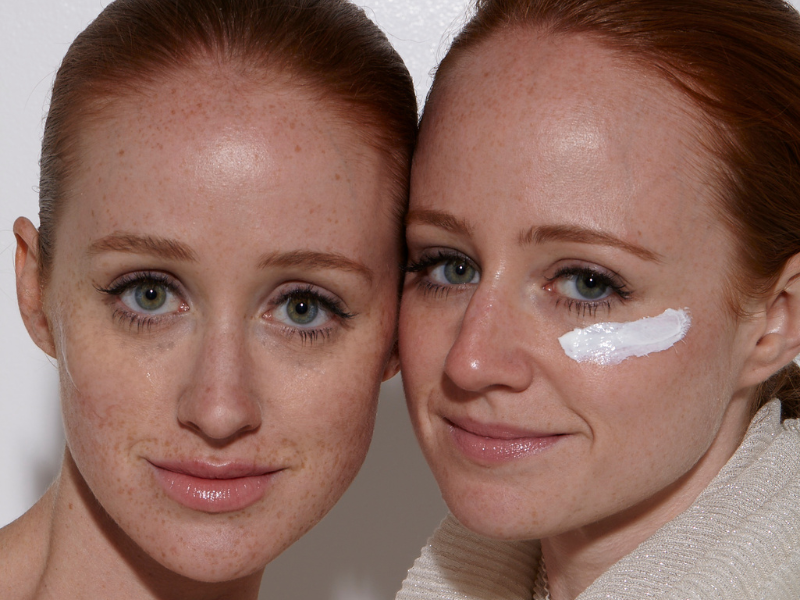It feels like there’s a new skincare trend circulating around social media every few weeks, and while some of them are total game changers, this newest one is downright dangerous. There’s a new trend involving sunscreen, and you know we had to look into it for you, redheads. Have you heard of SPF cocktailing? It’s the latest TikTok skincare trend, we’ve got the lowdown on what it is, if it works for redheads and what dermatologists are saying:
What is SPF Cocktailing?
You might be thinking this is about sipping on cocktails while slathered in sunscreen laying out in the sun (under an umbrella, of course). Sign us up — especially if Seasonal Depression Disorder is starting to sink in right about now. But unfortunately, that’s not what this trend is all about.
SPF cocktailing is the method of mixing together sunscreens with other skincare and makeup products. Many like this because it helps to save time in the getting-ready-routine by not applying skincare and makeup in the proper layers. Some TikToker’s claim SPF cocktailing also helps to remove the white cast that can be caused by sunscreens because it’s being mixed with other products.
What are dermatologists saying?
Like most trends, this idea was created by consumers and not advised by professionals. As much as we love a time saver, unfortunately, this hack can be quite dangerous for your skin and will leave you exposed to the sun. “In order for sunscreen to protect us from skin cancer and photoaging, it must be applied liberally and adequately to ensure it covers all areas of exposed skin,” Dr. Dennis Gross, practicing dermatologist, former skin cancer researcher, and co-founder of Dr. Dennis Gross Skincare, shared with Coveteur.com. “When you mix sunscreen with makeup, there is a high chance that you aren’t using enough SPF to effectively protect your skin, leaving you vulnerable to sun-related damage and burns.”
SPF cocktailing can be potentially dangerous if not done correctly for several reasons:
1. Inadequate Protection: Mixing or layering sunscreen products haphazardly can lead to an insufficient level of sun protection, as the combined SPF may not add up as expected. This could leave your skin vulnerable to harmful UV radiation.
2. Incompatibility: Some sunscreen ingredients can interact negatively when combined, reducing their effectiveness. Mixing certain products might lead to decreased sun protection.
3. Dilution: When you mix sunscreen with other products like moisturizers, there’s a risk of diluting the sunscreen’s active ingredients, which can compromise its ability to shield your skin from UV rays.
4. Patchy Coverage: Layering products may result in uneven application, leaving some areas of your skin underprotected while others are adequately shielded.
5. Allergic Reactions: Combining different products increases the likelihood of skin irritation or allergic reactions, especially if you have sensitive skin or allergies to specific ingredients.
6. Misinterpretation: There’s a risk of misunderstanding or miscalculating the total SPF level, which can lead to a false sense of security.
To ensure your skin is properly protected from the sun, it’s generally recommended to use a single, broad-spectrum sunscreen with an adequate SPF level for your needs, applied correctly and reapplied as directed on the product label. If you choose to SPF cocktail, do so cautiously and make sure the products are compatible and applied effectively to avoid these risks.
What can we do to same time instead?
If you want to A) save time and B) reduce white cast, you should use a tinted SPF. It will provide some color and coverage for your skin, without the white cast caused by many SPF products. It’s safe and effective because it’s formulated this way, and not being mixed by you at home.
Rock it like a Redhead!
RELATED POSTS
READ: BUSTED: 7 Myths Redheads Should Know About SPF And Sunscreen
READ: The 411: Should Redheads Layer or Mix Sunscreen?



